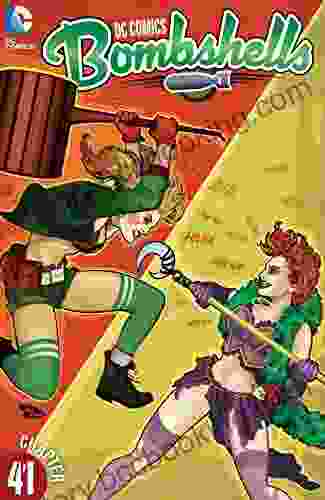Why Do We Say That? 101 Idioms, Phrases, and Sayings: Facts, Brief History, and Where They Originated

4.6 out of 5
| Language | : | English |
| File size | : | 4462 KB |
| Screen Reader | : | Supported |
| Print length | : | 562 pages |
| Lending | : | Enabled |
Language is a fascinating and ever-evolving phenomenon. It is a living, breathing entity that constantly adapts to the needs of its speakers. As a result, new words and phrases are constantly being created, while others fall out of use. Idioms, phrases, and sayings are a special type of language that often defy literal interpretation. They are often passed down from generation to generation, and their meanings can change over time.
In this article, we will explore the origins and meanings of 101 idioms, phrases, and sayings that we use in our everyday speech. We will uncover their rich history, cultural influences, and linguistic evolution. So sit back, relax, and enjoy this journey into the world of language!
101 Idioms, Phrases, and Sayings
- A bird in the hand is worth two in the bush - This proverb means that it is better to have something certain than to risk it for something better that may not come to fruition. It is thought to have originated in the 14th century.
- A leopard cannot change its spots - This proverb means that it is difficult for someone to change their true nature. It is thought to have originated in the 16th century.
- A penny saved is a penny earned - This proverb means that it is important to save money, even small amounts. It is thought to have originated in the 17th century.
- Actions speak louder than words - This proverb means that it is more important to judge someone by their actions than by their words. It is thought to have originated in the 18th century.
- All good things must come to an end - This proverb means that nothing lasts forever. It is thought to have originated in the 19th century.
- An apple a day keeps the doctor away - This proverb means that eating an apple every day is good for your health. It is thought to have originated in the 20th century.
- Barking up the wrong tree - This idiom means to be mistaken about something or to be on the wrong track. It is thought to have originated in the 19th century.
- Beat around the bush - This idiom means to avoid talking about something directly. It is thought to have originated in the 18th century.
- Bite off more than you can chew - This idiom means to take on more than you can handle. It is thought to have originated in the 16th century.
- Blow hot and cold - This idiom means to be indecisive or to change your mind frequently. It is thought to have originated in the 15th century.
- Break a leg - This idiom means to wish someone good luck. It is thought to have originated in the 18th century.
- Burn the midnight oil - This idiom means to work late into the night. It is thought to have originated in the 19th century.
- Call it a day - This idiom means to stop working or ng something. It is thought to have originated in the 19th century.
- Catch someone red-handed - This idiom means to catch someone in the act of ng something wrong. It is thought to have originated in the 17th century.
- Change of heart - This idiom means to change your mind about something. It is thought to have originated in the 18th century.
- Clear as mud - This idiom means to be very confusing or difficult to understand. It is thought to have originated in the 19th century.
- Come a long way - This idiom means to improve or progress significantly. It is thought to have originated in the 18th century.
- Cost an arm and a leg - This idiom means to be very expensive. It is thought to have originated in the 16th century.
- Count your blessings - This idiom means to be grateful for what you have. It is thought to have originated in the 17th century.
- Cross your fingers - This idiom means to hope for something to happen. It is thought to have originated in the 19th century.
- Cry over spilled milk - This idiom means to be upset about something that cannot be changed or undone. It is thought to have originated in the 16th century.
- Cut to the chase - This idiom means to get to the point or to be direct. It is thought to have originated in the 20th century.
- Dead as a doornail - This idiom means to be very dead. It is thought to have originated in the 14th century.
- Do a double take - This idiom means to look at something twice because you are surprised or confused. It is thought to have originated in the 20th century.
- Don't count your chickens before they hatch - This proverb means that you should not assume that something will happen before it actually does. It is thought to have originated in the 16th century.
- Don't cry wolf - This proverb means that you should not make false alarms. It is thought to have originated in the 15th century.
- Don't give up the day job - This idiom means to tell someone that they are not very good at something. It is thought to have originated in the 20th century.
- Don't put all your eggs in one basket - This proverb means that you should not rely on one thing for success. It is thought to have originated in the 16th century.
- Don't sweat the small stuff - This idiom means to not worry about minor problems. It is thought to have originated in the 20th century.
- Drive someone up the wall - This idiom means to make someone very angry or frustrated. It is thought to have originated in the 19th century.
- Eat humble pie - This idiom means to apologize or to admit that you were wrong. It is thought to have originated in the 18th century.
- Easier said than done - This proverb means that something is more difficult to do than it is to say. It is thought to have originated in the 16th century.
- Every cloud has a silver lining - This proverb means that even in the worst of times, there is always something good to be found. It is thought to have originated in the 17th century.
- Face the music - This idiom means to accept the consequences of your actions. It is thought to have originated in the 19th century.
- Fall between the cracks - This idiom means to be overlooked or forgotten. It is thought to have originated in the 19th century.
- Feel under the weather - This idiom means to feel sick or unwell. It is thought to have originated in the 19th century.
- Fit as a fiddle
4.6 out of 5
| Language | : | English |
| File size | : | 4462 KB |
| Screen Reader | : | Supported |
| Print length | : | 562 pages |
| Lending | : | Enabled |
Do you want to contribute by writing guest posts on this blog?
Please contact us and send us a resume of previous articles that you have written.
 Book
Book Novel
Novel Page
Page Chapter
Chapter Text
Text Story
Story Genre
Genre Reader
Reader Library
Library Paperback
Paperback E-book
E-book Magazine
Magazine Newspaper
Newspaper Paragraph
Paragraph Sentence
Sentence Bookmark
Bookmark Shelf
Shelf Glossary
Glossary Bibliography
Bibliography Foreword
Foreword Preface
Preface Synopsis
Synopsis Annotation
Annotation Footnote
Footnote Manuscript
Manuscript Scroll
Scroll Codex
Codex Tome
Tome Bestseller
Bestseller Classics
Classics Library card
Library card Narrative
Narrative Biography
Biography Autobiography
Autobiography Memoir
Memoir Reference
Reference Encyclopedia
Encyclopedia Satya Sundar Sethy
Satya Sundar Sethy Luke A Nichter
Luke A Nichter Stevan Harrell
Stevan Harrell Shaun Bythell
Shaun Bythell Susan Mcclelland
Susan Mcclelland Margaret K Wetterer
Margaret K Wetterer Roger Kopanycia
Roger Kopanycia Paul Seftel
Paul Seftel Robert Young Pelton
Robert Young Pelton Lydia Sloan Cline
Lydia Sloan Cline Tom Burke
Tom Burke Rebecca Smallberg
Rebecca Smallberg Margaret Rooke
Margaret Rooke Yang Hu
Yang Hu Yvonne Bohn
Yvonne Bohn Margrit Strohmaier
Margrit Strohmaier Toni Petniunas
Toni Petniunas Mags Deroma
Mags Deroma Lisa Stone
Lisa Stone M G Vassanji
M G Vassanji
Light bulbAdvertise smarter! Our strategic ad space ensures maximum exposure. Reserve your spot today!

 Greg FosterDiscover the Enchanting World of the Sioux: A Journey of Wonder for Curious...
Greg FosterDiscover the Enchanting World of the Sioux: A Journey of Wonder for Curious...
 Nathaniel HawthorneHop into Spring with "Here Comes Peter Cottontail Pictureback": A Nostalgic...
Nathaniel HawthorneHop into Spring with "Here Comes Peter Cottontail Pictureback": A Nostalgic...
 Charles DickensUnveiling the Secrets of Online Course Creation: A Comprehensive Guide with...
Charles DickensUnveiling the Secrets of Online Course Creation: A Comprehensive Guide with...
 Ignacio HayesUnleash the Creative Potential of Young Knitters: A Comprehensive Guide to...
Ignacio HayesUnleash the Creative Potential of Young Knitters: A Comprehensive Guide to...
 Desmond FosterUncover the Secrets of Manifestation with Neville's Five Lessons Master Class
Desmond FosterUncover the Secrets of Manifestation with Neville's Five Lessons Master Class Davion PowellFollow ·12.7k
Davion PowellFollow ·12.7k Nick TurnerFollow ·3.3k
Nick TurnerFollow ·3.3k Derek CookFollow ·4.9k
Derek CookFollow ·4.9k Sam CarterFollow ·4.3k
Sam CarterFollow ·4.3k Oscar BellFollow ·14.4k
Oscar BellFollow ·14.4k Foster HayesFollow ·11.6k
Foster HayesFollow ·11.6k Clark BellFollow ·17.7k
Clark BellFollow ·17.7k Mason PowellFollow ·2.3k
Mason PowellFollow ·2.3k

 Truman Capote
Truman CapoteShort, Skinny Mark Tatulli: The Ultimate Guide to a...
Are you tired of being...

 Robert Heinlein
Robert HeinleinEmbark on an Unforgettable Cycling Adventure: The Classic...
Explore the Timeless...

 Bryce Foster
Bryce FosterMisty Twilight: Marguerite Henry's Enduring Masterpiece
A Literary Legacy that...

 Anton Chekhov
Anton ChekhovUnleash the Explosive Power of DC Comics Bombshells 2024...
Prepare yourself for an...

 Juan Butler
Juan ButlerUnleash the Thrill: Discover 'Know Your Rider' by...
Prepare yourself for an...
4.6 out of 5
| Language | : | English |
| File size | : | 4462 KB |
| Screen Reader | : | Supported |
| Print length | : | 562 pages |
| Lending | : | Enabled |




